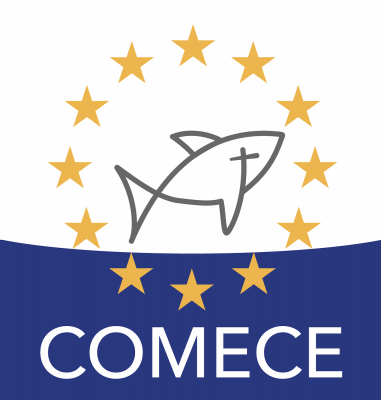On 31 May COMECE – the Catholic Church’s representative office in the European Union – published a position paper entitled Strengthening the Culture of Democracy through Values. The paper explains that the values which underpin the principle of democracy of the European Union are rooted in the philosophical thought nurtured by Christianity. The paper states that “Catholic Social Teaching illuminates how cultural dynamics intersect with its foundational principles, emphasizing the transformative power of cultural engagement to foster peace, respect for life and intercultural dialogue.”
The paper describes democracy “as a principle laid down in the European treaties [that] is a precious cultural and institutional achievement passed on to us by previous generations. It is our responsibility to consolidate, promote and improve democracy in Europe in order to pass it on to the next generations.”
Importantly, the success of the European project does not depend only on the economic integration and technological progress, but “on the acceptance of fundamental rights and values, such as human dignity, human rights, freedom, non-discrimination, common good, subsidiarity, justice, tolerance, inclusion, solidarity, equity and religious freedom.
“The Catholic Church, as an important stakeholder in European society, cannot remain indifferent to democratic processes since the dignity of every resident in Europe, human rights, the values of justice, solidarity and subsidiarity are intertwined with democracy. The Church values the democratic system inasmuch as it ensures the active participation of citizens in making political choices that hold accountable those who govern.”
On EU institutions the paper states that “their political decision-makers are aware of the need for a deep analysis and protection of the quality of EU democracy, the legitimacy of its institutions, and their responsiveness to the needs and preferences of the EU members states and citizens.”
On participation, “it is necessary to advocate for a transparent and accessible electoral system … to support measures that increase voter turnout … The introduction of transnational lists of political candidates for the European Parliament should be studied further.”
Regarding truthful information as a precondition for active participation in a digital culture – and to challenge disinformation – the paper references the EU Digital Service Act 2023, stating that the “act enhances the transparency, accountability and oversight of social networks to limit the adverse effect of disinformation. We need an open, transparent and honest discussion on how to balance the safeguarding of democratic processes, the protection of individual freedoms and the progressive digitalization of information.”
Regarding the concept of subsidiarity “this principle, which has its roots in Christian social ethics, states that the EU may only regulate those areas that cannot be better regulated at regional or EU member State level.” Therefore, “the institutional and political protection of subsidiarity must be strengthened by reinforcing the participation of national parliaments in EU legislative and political processes.”
Finally, regarding enlargement, the paper reminds us that nine countries have been granted the official status of “candidate countries” by the EU. Notwithstanding its inherent challenges, the COMECE bishops have maintained “that the future EU enlargement is an opportunity to update the idea of a united Europe rooted in practical solidarity”, and that a “deep reflection on our common value basis and the special bonds that unite us as a European family” [including] … “a responsible discussion regarding the budgetary components”, is needed.
Therefore, the paper states, “what Pope Francis meant by a culture of encounter in Evangelii Gaudium [was] … an inclusive culture, dialogue and a peaceful coexistence that builds common understanding [as] cornerstones for the democratic resilience of Europe.”
To access the full text click Strengthening the Culture of Democracy through Values
ENDS


